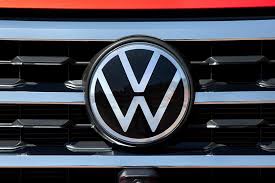Volkswagen AG is considering unprecedented factory closures in Germany in a bid for deeper cutbacks, delivering another blow to Chancellor Olaf Scholz’s government.
The potential measures, targeting its main passenger car brand as well as other group operations, also include trying to end the company’s pact with unions to keep jobs secure until 2029, the company said Monday.
Any shutdowns would mark the first closures in Germany during the company’s 87-year history, setting VW up for a clash with powerful unions.
“The economic environment has become even tougher and new players are pushing into Europe,” VW Chief Executive Officer Oliver Blume said in a statement. “Germany as a business location is falling further behind in terms of competitiveness.”
A full-blown labor dispute would be a major test for the CEO – who also heads up the Porsche sports car brand – after union clashes felled a number of his VW predecessors. The company has struggled to cut costs at its namesake passenger brand where profit margins have long lagged, with efforts becoming harder amid a sputtering transition to EVs and a consumer spending slowdown.
Works council head Daniela Cavallo said VW’s management had failed after meetings detailed that the company’s core brand, making the Golf and Tiguan models, threatened to become loss-making, according to a separate statement. The company is plotting to close at least one larger carmaking factory and one component site in Germany, it said, alongside abolishing wage agreements.
VW employs about 650,000 workers globally, almost 300,000 of which are in Germany. Half the seats on the company’s supervisory board are held by labor representatives, and the German state of Lower Saxony – which owns a 20% stake – often sides with trade union bodies.
Previous clashes ended or shortened the tenures of top executives including former CEO Bernd Pischetsrieder, ex-VW brand chief Wolfgang Bernhard and more Herbert Diess, Blume’s predecessor as CEO. All three tried to push through efficiencies particularly at VW’s domestic German operations.
